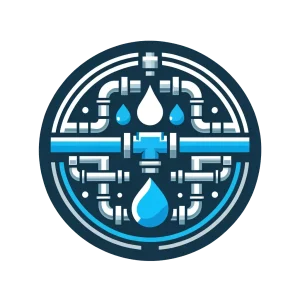Essential Tips for Toronto Residents
Learn the fundamental principles of plumbing, effective clogged drain solutions, and practical leaky faucet repair techniques with our comprehensive guide tailored for Toronto residents.
Understanding Plumbing Basics
Understanding Plumbing Basics is essential for every Toronto resident. Whether you’re dealing with a minor leak or a major clog, knowing the fundamentals can save time and money. Common issues include clogged drains, leaking pipes, and malfunctioning fixtures. Seasonal changes in Toronto can exacerbate plumbing problems, such as frozen pipes during harsh winters.
Clogged Drains: Identifying blockages early prevents severe damage. Regular maintenance, like flushing drain lines with baking soda and vinegar or using enzyme-based cleaners, helps prevent buildup. Keep drain screens to catch debris, reducing the risk of clogs. If a slow drain persists, use a plunger or chemical drain cleaner cautiously.
Leaky Faucets: A dripping faucet may indicate worn-out washers or O-rings. Turn off water supply, disassemble the faucet, and replace faulty parts. For persistent leaks, contact a professional plumber to check for deeper issues.
Preventive measures include regular inspections and promptly addressing small issues to avoid costly repairs. Understanding plumbing basics empowers you to handle common problems efficiently, ensuring your home’s comfort year-round.
Identifying Common Drain Clogs
Understanding the fundamental concepts of plumbing systems is essential for maintaining your home’s infrastructure. Plumbing basics include components like pipes, fixtures, and traps, which work together to manage water flow and waste removal. Proper maintenance ensures longevity and prevents costly repairs. Now, let’s delve into identifying common drain clogs, a frequent issue for Toronto homeowners.
Drain clogs can occur due to various factors, such as hair, grease, food particles, or mineral buildup. In older Toronto neighborhoods with aging infrastructure, tree roots or debris in city sewers can also contribute to blockages. Identifying the source of the clog is crucial for effective resolution. For instance, a slow draining sink might indicate a partial blockage caused by grease accumulation, while a completely blocked drain could signal a larger obstruction, such as a collapsed pipe or septic system issue.
Preventing clogs involves simple practices like using drain screens to catch debris and avoiding the disposal of non-degradable items down sinks or toilets. Regular maintenance, such as flushing drains with hot water or baking soda and vinegar solutions, can also help dissolve buildup before it becomes problematic. For Toronto residents, being mindful of what goes into the plumbing system is key to avoiding costly repairs and ensuring smooth operation.
By staying proactive and understanding common causes of drain clogs, you can extend the life of your plumbing system and avoid unnecessary headaches. This knowledge will also prepare you for addressing issues when they arise, whether through DIY solutions or professional intervention.
DIY Clogged Drain Solutions
Understanding plumbing basics is essential for any homeowner in Toronto looking to tackle common issues like clogged drains or leaky faucets. Clogged drains can often be resolved with simple DIY solutions, but it’s important to approach these problems methodically to avoid causing further damage. Start by identifying the type of clog you’re dealing with—whether it’s a slow drain caused by grease buildup, hair entanglement, or debris accumulation in your pipes. Once you’ve diagnosed the issue, you can choose the most effective solution.
For clogged drain solutions, one of the simplest methods is using a plunger. Apply steady pressure over the drain opening to create suction and dislodge blockages. If that doesn’t work, a drain snake or auger can help remove stubborn debris manually. Another eco-friendly option is mixing baking soda and vinegar to break down organic matter. Pour half a cup of baking soda followed by half a cup of vinegar into the drain, let it sit for 15-30 minutes, then flush with hot water. For tougher clogs, enzyme-based drain cleaners can safely dissolve buildup without harsh chemicals.
When it comes to leaky faucet repair, start by turning off the water supply under your sink. Inspect the faucet for worn-out O-rings or washers. These small components often wear out over time and can be replaced with a few simple tools. If you’re unsure about tackling this yourself, consider consulting a professional plumber later to ensure proper installation.
DIY solutions are great for minor issues, but there’s no shame in seeking help when problems persist. Persistent clogs or leaks could indicate larger plumbing concerns that require specialized expertise. By mastering these , Toronto residents can save time and money while keeping their homes running smoothly.
Professional Clogged Drain Solutions
When it comes to clogged drain solutions, there are situations where DIY methods simply aren’t enough. Professional plumbers bring advanced tools and expertise to tackle persistent or severe blockages that might involve tree roots, grease buildup, or damaged pipes. These professionals use high-pressure water jets, drain cameras, and other specialized equipment to locate and remove obstructions efficiently. Hiring a licensed plumber ensures that the job is done safely and effectively without risking further damage to your plumbing system.
In addition to resolving clogs, plumbers can address underlying issues that may contribute to recurring problems. For instance, they can inspect your pipes for signs of wear or corrosion and recommend preventative measures like pipe lining or replacement. Regular maintenance, such as routine drain cleaning or installing enzyme-based treatments, can help prevent future blockages and keep your plumbing system in optimal condition.
When dealing with leaky faucet repair, professional plumbers are also equipped to handle a variety of issues. Whether the problem stems from worn-out O-rings, damaged washers, or improper installation, a skilled technician can diagnose the root cause and provide lasting solutions. They may also assess whether your faucet requires part replacement or if it’s more cost-effective to upgrade to a newer model with improved efficiency.
For Toronto residents, investing in professional plumbing services is essential for maintaining reliable water flow and avoiding costly repairs down the line. By combining advanced clogged drain solutions with thorough leaky faucet repair and regular maintenance, you can ensure that your home’s plumbing system remains robust and trouble-free.
Leaky Faucet Repair: Troubleshooting and Prevention
Leaky faucets are one of the most common plumbing issues in homes, especially for Toronto residents who often deal with hard water. A dripping faucet might seem minor, but over time, it can lead to significant water waste and higher utility bills. Understanding the basics of plumbing can help you troubleshoot and prevent such issues before they escalate.
A leaky faucet typically occurs due to worn-out washers, corroded O-rings, or mineral buildup from hard water. Hard water is prevalent in Toronto, and its high mineral content can cause calcium and lime deposits to accumulate inside pipes and fixtures, leading to leaks or slow drips. To address this, start by turning off the water supply to the faucet. This is a crucial step to ensure safety and prevent further damage while you work on the repair.
Once the water is turned off, disassemble the faucet carefully. Inspect the washer and O-rings for signs of wear or mineral buildup. If they appear worn out, replace them with new ones available at most hardware stores. For mineral deposits, use a mixture of vinegar and baking soda to clean the affected areas. This natural solution can help dissolve the buildup without damaging the faucet components.
Preventing leaks requires regular maintenance. Check your faucets periodically for any signs of wear or unusual noises. If you notice water dripping even after turning off the faucet, address it promptly. Additionally, consider installing a water softener to reduce mineral buildup in your plumbing system.
While many faucet repairs can be handled by homeowners with basic tools and knowledge, there are situations where professional help is necessary. For example, if the leak persists despite replacing parts or if you suspect internal damage to the pipes, it’s best to call a licensed plumber. They have the expertise and tools to diagnose and fix complex issues efficiently.
By staying proactive and understanding plumbing basics, you can save money on repairs and ensure your home’s plumbing system remains in good working order.
Emergency Plumbing Tips
Understanding is essential for every homeowner in Toronto, especially when dealing with emergencies. A basic knowledge of your home’s plumbing system can help you identify issues early and prevent minor problems from turning into major headaches. Your plumbing system consists of three main components: water supply lines, drainage pipes, and vent stacks. The water supply delivers clean water to your fixtures, while the drainage system removes wastewater and sewage. The vent stack ensures proper airflow to maintain pressure balance in your pipes.
When it comes to clogged drains, Toronto residents often face issues caused by grease buildup, hair, or debris. A clogged drain can quickly escalate into a plumbing emergency if left untreated. To tackle this, start by using a plunger to create suction and dislodge the blockage. For tougher clogs, pour half a cup of baking soda followed by half a cup of vinegar down the drain. Let it sit for 15–30 minutes before flushing with hot water. If these methods don’t work, consider renting a drain snake or using a chemical drain cleaner as a last resort. However, avoid overusing harsh chemicals, as they can damage your pipes over time.
Another common issue is , which we covered in detail in the previous chapter. While fixing a leaky faucet may seem simple, it’s important to address the root cause, such as worn-out washers orO-rings. Regular inspections and maintenance can help prevent leaks from occurring in the first place.
To avoid common plumbing mistakes, always use drain screens to catch debris and never pour grease down the sink. Additionally, ensure that your pipes are properly insulated during Toronto’s cold winters to prevent freezing and bursting. By staying proactive and understanding these , you can handle emergencies with confidence and keep your home’s system running smoothly.
Maintaining Your Plumbing System
Maintaining your plumbing system is essential for ensuring smooth functionality and preventing costly repairs down the line. Regular upkeep can save you time, money, and stress in the long run. Let’s dive into some , , and how to tackle a .
First, understanding is key. Regularly inspect your pipes, fixtures, and connections for signs of wear and tear. Check under sinks, behind appliances, and in crawl spaces for leaks or corrosion. If you notice any issues, address them promptly before they escalate. Additionally, be mindful of what goes down your drains—avoid flushing non-degradable items like wipes, paper towels, or food scraps that can cause blockages.
For , prevention is often the best approach. Use drain screens to catch debris and clean them regularly. If a clog does occur, start with simple fixes like using a plunger or baking soda and vinegar mixture to clear minor blockages. For tougher clogs, consider using an enzymatic cleaner or a drain snake to remove buildup without damaging your pipes. Avoid harsh chemical drain cleaners, as they can corrode your plumbing over time.
Lastly, don’t ignore a . A dripping faucet may seem minor, but it can waste gallons of water and increase your utility bills. Begin by turning off the water supply under the sink and disassembling the faucet to inspect for worn-out washers or O-rings. Replacing these parts is often a quick fix. If you notice mineral buildup, soak the components in vinegar to soften them before cleaning. If you’re unsure about tackling the repair yourself, don’t hesitate to call a professional plumber.
By staying proactive with , addressing clogs early, and fixing leaks promptly, you can keep your plumbing system running smoothly for years to come. Regular maintenance not only prevents emergencies but also extends the lifespan of your pipes and fixtures.
Conclusions
By understanding basic plumbing principles, identifying common issues, and following the practical solutions outlined in this guide, Toronto residents can save time and money by taking care of simple clogged drain and leaky faucet problems on their own. Remember that professional help is always available when needed, and preventative maintenance will ensure a long-lasting plumbing system.

